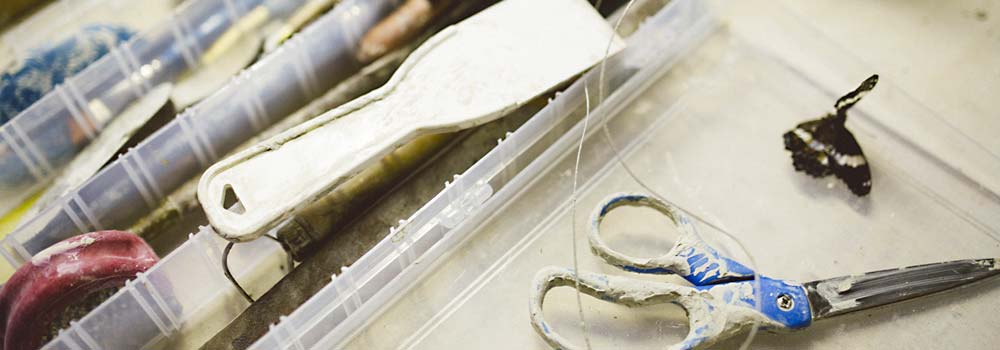Watershed was recently awarded a $30,000 grant from the National Endowment for the Arts to support a three-week artist residency organized by members of The Color Network (TCN).
TCN supports BIPOC artists working in clay by providing resources, visibility, and professional development opportunities. They are also building a mentorship pipeline that links experienced and emerging ceramists. During their residency at Watershed this summer, participating artists will have unlimited access to our new state-of-the-art studio to work on independent and collaborative projects. They will also take part in group work focused on developing mentor-mentee relationships.
“I think it’s so important to have mentors you identify with,” shares TCN steering committee member Natalia Arbelaez. “BIPOC artists will sometimes be the only ones like them in their community or institution. Having support from someone who has already navigated similar experiences is so valuable.”
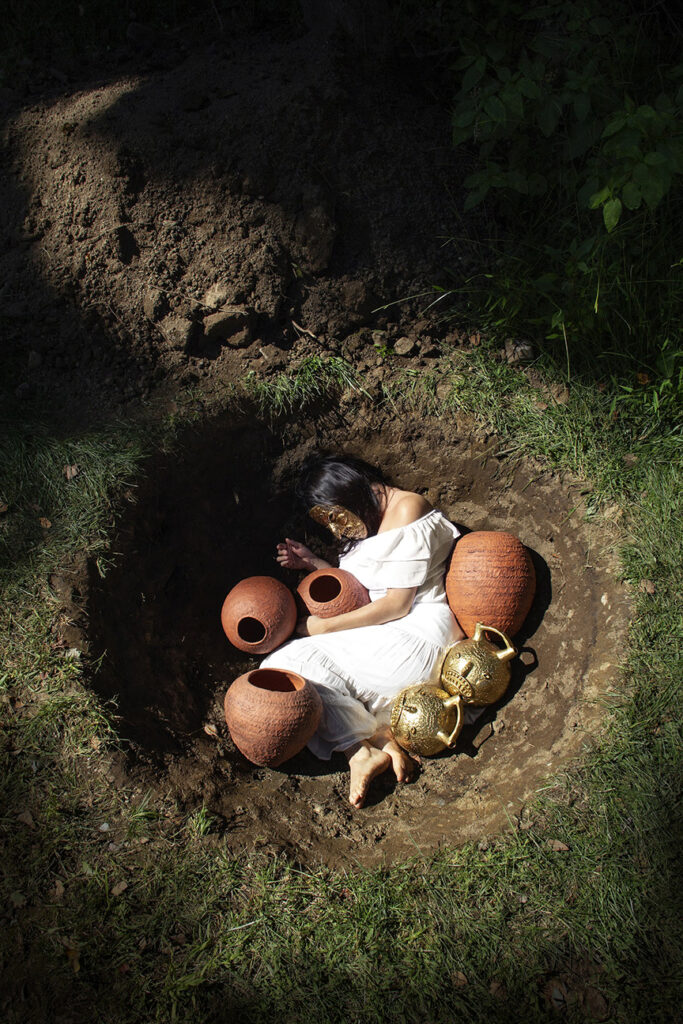
Natalia Arbelaez, “Ceremonies for González”, performance, 2019
Fellow TCN artist Adam Chau agrees, “When I was in school, it was very hard to have intimate critiques with people who didn’t necessarily understand my culture. I hope that our mentorship can be a supplement to artists who find themselves not being able to resonate with their peers or immediate community.”

Adam Chau, “TXT”, porcelain, cobalt, white gold luster, 2018, photo: Jorrit Taekema
With TCN members scattered across the country, virtual meetings and online conversations have provided creative connection. However, the collective felt that making work together and spending time with one another in person was essential for mentors and mentees. The majority of TCN’s steering committee—which also includes artists April Felipe, Salvador Jiménez-Flores, and Yinka Orafidiya—had previously participated in residencies at Watershed. They agreed that our open-ended program structure and 54-acre campus would provide the ideal place to gather and develop their mentorship program.
“Until very recently, I thought I had nothing to offer as a mentor…I mean, who am I to advise anyone in a craft that I’m still figuring out myself?” Yinka Orafidiya says, “But I realized that, at a bare minimum, my value is captured by continually showing up—an offer of Black representation, which is sorely lacking in American ceramics. Through my many failures, rejections, and missteps, I have accumulated a wealth of wisdom that I now believe will be useful to the next generation of BIPOC makers.”
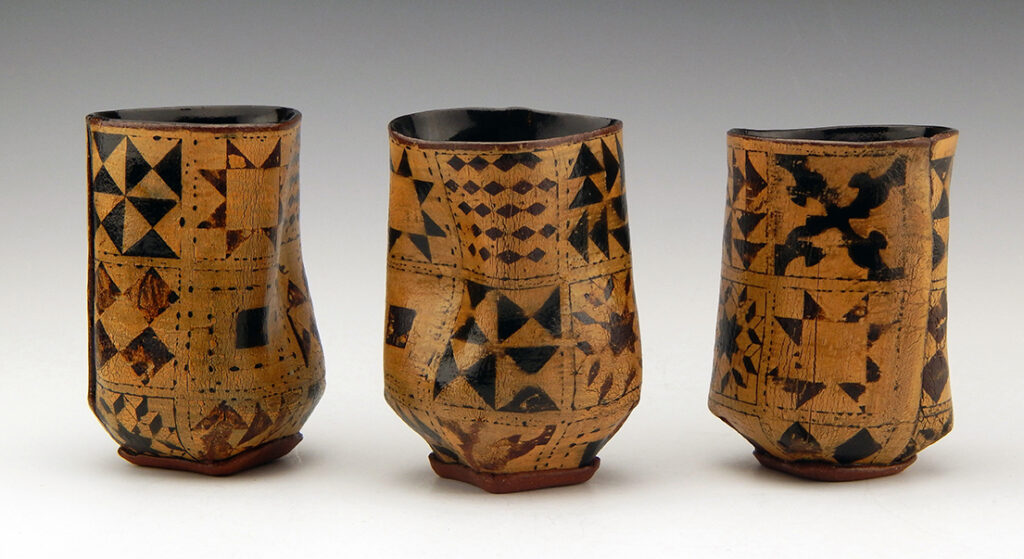
Yinka Orafidiya, “Freedom Cups”, Underground Railroad code printed on red stoneware, 2018
Due to the coronavirus pandemic, Watershed has instituted new campus health and safety measures to accommodate physical and social distancing in accordance with Maine CDC guidelines. These changes result in a decreased number of participants but still allow for eleven artists-in-residence to spend three weeks together on campus.
TCN intends for this residency to act as a springboard for additional virtual and in-person programs. The small group of participating artists plans to connect with their greater community and the public during the residency via livestreamed artist talks, demos, interviews, and conversations.
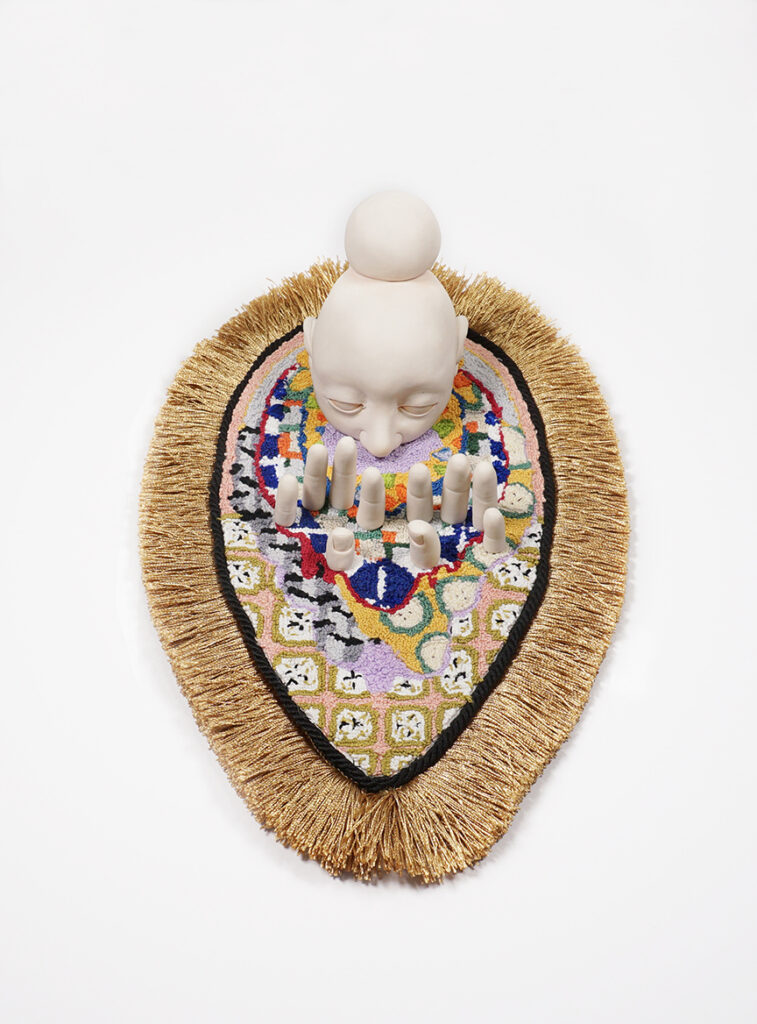
April Felipe, “Wade”, porcelain, cotton thread, glaze, pastel, acrylic paint, 2018
Like many arts organizations, Watershed’s programs are funded through a mix of donor support, grants, and direct fees paid by participants. By applying for grant funding, Watershed and TCN endeavored to remove financial barriers to participation. “Residencies are powerful places where artists develop their work and create deep relationships within their field,” shares April Felipe, who first took part in a Watershed session in 2016. “For many BIPOC artists, cost is too large an obstacle while also navigating if the space will be welcoming and safe. We wanted to create an opportunity that could eliminate those obstacles. Funding through the NEA grant allowed us to do this and more.”
This $30,000 Grants for Arts Projects (GAP) award is one of 1073 selected projects from a pool of 1674 applications submitted in 2020. The National Endowment for the Arts awarded nearly $25 million in support for 64% of all applicants with an average grant amount of $23,190.
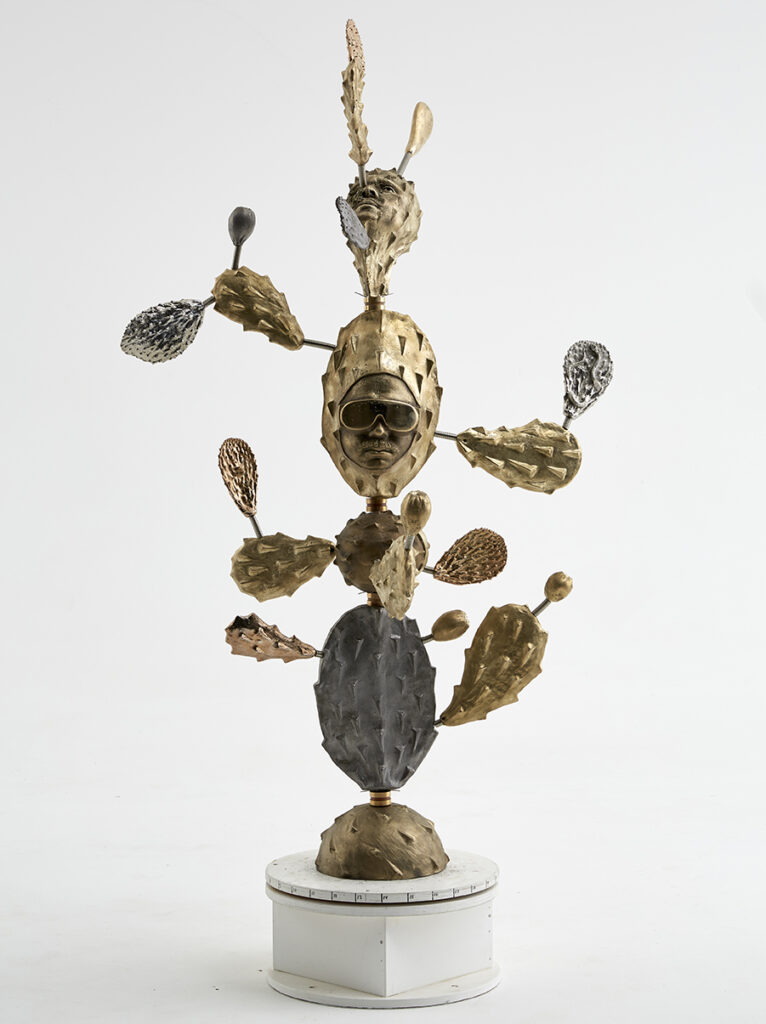
Salvador Jimenez-Flores, “Nopal Espacial”, brass, cast iron, rose gold plating, brass hose, 2019
Subscribe to Watershed’s e-newsletter to keep updated on ways to connect with TCN during their session and find additional NEA grant information at arts.gov
